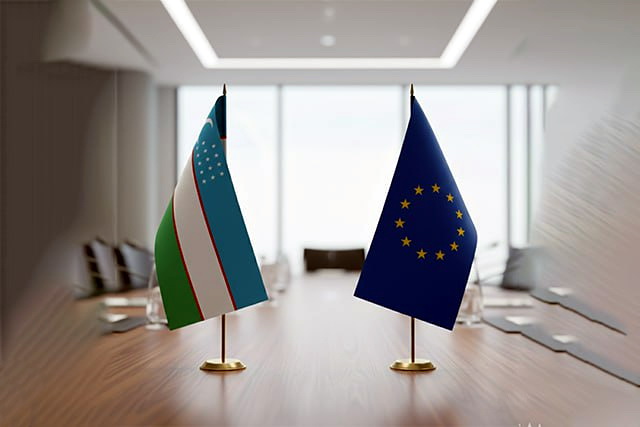
President of Uzbekistan to Visit Brussels for Signing of Enhanced Partnership and Cooperation Agreement with the EU
President of Uzbekistan to Visit Brussels for Signing of Enhanced Partnership and Cooperation Agreement with the EU
Tashkent, Uzbekistan (UzDaily.com) — President of the Republic of Uzbekistan Shavkat Mirziyoyev will make an official visit to Brussels on 24 October 2025, during which the Enhanced Partnership and Cooperation Agreement (EPCA) between Uzbekistan and the European Union will be signed.
According to Euronews, the agreement opens a new chapter in political and economic engagement, strengthens mutual ties, and supports the reforms being implemented in Uzbekistan.
The EPCA will serve as a modern framework for cooperation across five strategic areas: political dialogue, trade, security, sustainable development, and sectoral collaboration. It underscores a shared commitment to common values, economic modernization, and strengthening global partnership.
Furthermore, the EPCA lays the groundwork for future initiatives, including the EU–Central Asia Investment Forum, scheduled to take place in Tashkent in November 2025.
European Council President António Costa, in a congratulatory message on Uzbekistan’s Independence Day, highlighted the importance of the upcoming visit:
“I very much look forward to our meeting in Brussels on 24 October 2025, when we will sign the Enhanced Partnership and Cooperation Agreement between the European Union and Uzbekistan,” Euronews quotes Costa as saying.
During the EU–Central Asia summit in Samarkand, European Commission President Ursula von der Leyen emphasized that the EU intends to deepen cooperation in trade, transport, critical minerals, digital connectivity, and energy, supported by a €12 billion investment package under the Global Gateway initiative.
“Uzbekistan plays a key role and occupies a prominent place within Global Gateway. This marks the beginning of a new chapter in our long-term partnership,” von der Leyen said, according to Euronews.
The EPCA will replace the 1996 agreement, creating an updated legal basis for deepening relations between Tashkent and Brussels.
In a statement to Euronews, the EU Delegation to Uzbekistan noted:
“This agreement reflects how both the EU and Uzbekistan have evolved over the past two decades. EPCA elevates our relations to a level of strategic partnership with a stronger political and sectoral foundation than ever before.”
Uzbekistan’s Ministry of Foreign Affairs emphasized that the signing of EPCA will be a historic milestone in relations with the European Union:
“The agreement reflects the significant political, economic, and institutional progress our country has made. It establishes a modern and comprehensive platform for political dialogue, trade, and sectoral cooperation, fully aligned with our reform agenda aimed at building an open, rules-based economy.”
For the European Union, the agreement strengthens ties with a dynamic market at the heart of Eurasia, while for Uzbekistan it expands integration into the European economy, improves access to EU markets under the GSP+ status, and attracts investment in key sectors such as energy, digitalization, agriculture, and the green economy.
According to Euronews, EU–Central Asia cooperation has significantly intensified in recent years. Since 2017, the region’s trade with the EU has grown to €54 billion, with trade between Uzbekistan and the EU reaching €6.4 billion in 2024, an 8% increase.
Currently, more than 1,000 enterprises with European capital operate in Uzbekistan, and the total investment project portfolio approaches €40 billion.
Euronews notes that President Mirziyoyev’s upcoming visit to Brussels will be an important step in strengthening strategic partnership and demonstrate the parties’ commitment to sustainable development and mutual economic integration.